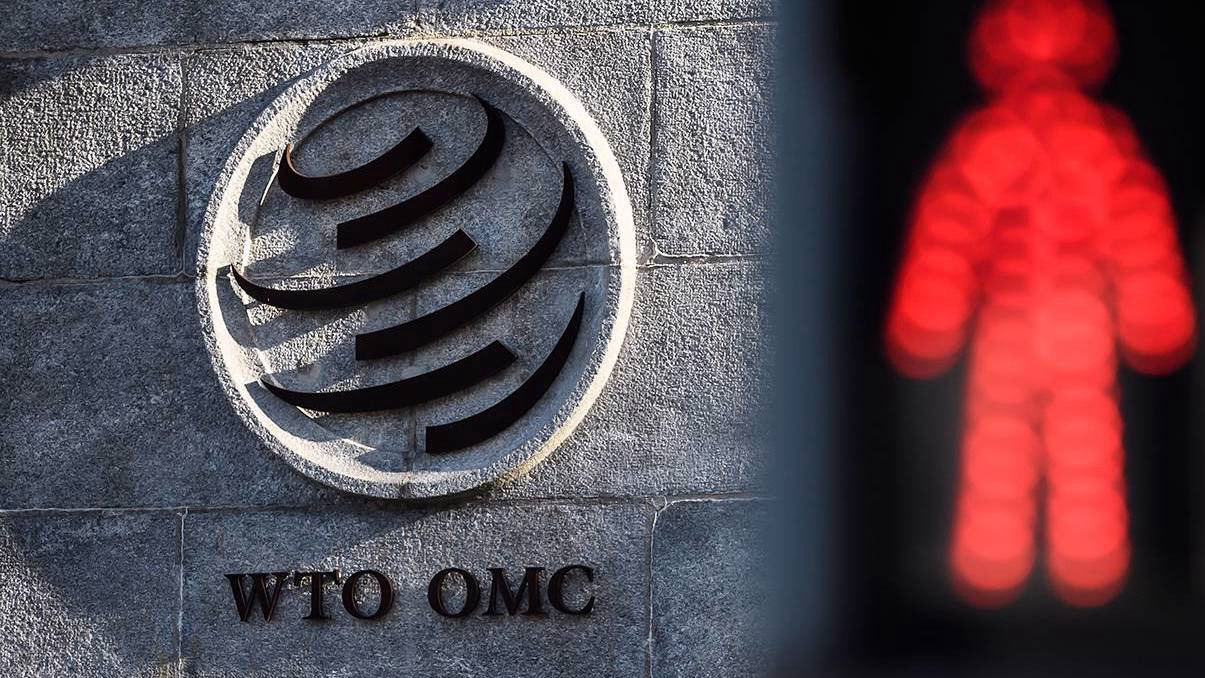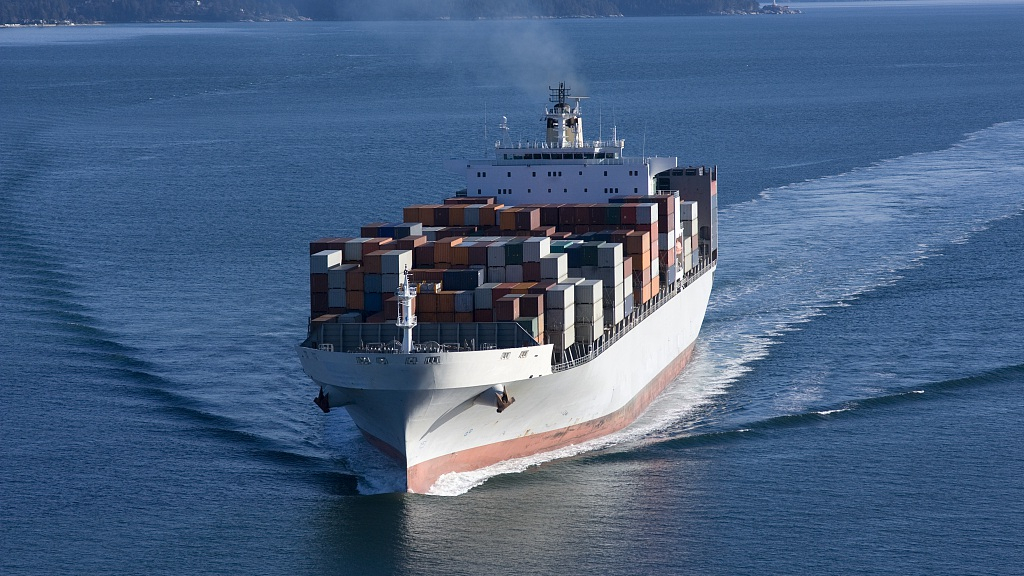
Editor's note: Cheng Dawei is a professor at the School of Economics, Renmin University of China. The article reflects the author's views, and not necessarily those of CGTN.
The WTO has now started the process of appointing a new Director-General and plans to reform its trade policies. According to the WTO rules, the new appointment should be made through consensus by all WTO members. It is usually assumed that this selecting process will be fair, but in reality, the outcome is influenced by power competition within the organization which will also impact the WTO's future reform.
In history, there have been many cases of powerful countries influencing trade rules. Before the World War I, the industrial products of the advanced nations could freely enter the less advanced economies whose trade policies were largely controlled by other powerful countries. For example, the British had a lot of influence on Latin America nations and India. India's vibrant textile industry was severely undermined and threatened by the cloth and yarn imported from Britain, which was produced with much more advanced industrial techniques. India could not stop this because its market was forced open by the British control. During the 1850-1900 period, about 75 percent of India's domestically consumed textiles was imported.
Today, in the WTO system, to what extent a member' trade interests can be satisfied is linked with its power and strength. Power here refers to the structural power with which members lead the agenda setting, formulate new international standards, amend and re-interpret existing international rules. All members set or accept certain reform agendas as per their respective interest and value judgment, so as to reach a consensus through competition on discourse and turn discourse to rules.
A country's power firstly comes from its legal status obtained through taking part in international system. It should be an equal right of participation based on sovereignty. However, different countries' power which reflect their influences in the international system are not equal.
I still remember my experience at Cancún in 2003. Forcing developing countries to fulfill certain obligations is one of the reasons why the WTO's 5th Ministerial Conference held in Cancún ended in failure, not able to reach an agreement over a range of issues. Poor developing countries proposed that giving the Special and Different Treatments to developing countries must be the prerequisite for the Doha negotiations, and demanded more specific clauses on the treatment.
After the Cancún Ministerial Conference failed, Pascal Lamy, the then commissioner of the European Union Trade Commission, once proposed that non-reciprocal markets should be opened to the poor and other highly vulnerable developing countries in agricultural and industrial products sectors, and developed countries should provide developing ones with greater access to their markets. This proposal looks non-reciprocal, but is fairer indeed.

Economist Joseph E. Stiglitz once put forward a market access proposal after Cancún Ministerial Conference. He stressed that all members must participate in a trading system that preferential policies would be enforced, share the obligations in accordance with their economic conditions, and provide free market access to all products for developing countries. Like Lamy's idea, Stiglitz was trying to make a balance between economic power and political power when the trade law is making.
The power in the WTO can be divided into different types by strength and capability:
The first type of power in the WTO is the structural discourse power. Structural discourse power is the power at the highest level. Countries with this type of discourse power are at the top of the global power structure, which is determined by their strong economic, political, and military strength, and thus they have the ability to force other countries into adopting certain rules. After World War II, the U.S. possessed the structural capability of enacting international rules and shaping international discourse power system.
Some nations have skill-based discourse power, which means they have sufficient professional skills and knowledge reserves, and have focused on certain issues for a long time, and therefore can propose convincing ideas and methods to solve problems, and receive positive responses of some like-minded countries.
Most countries in the WTO are weak. Only by means of forming an alliance can they obtain discourse power.
The reversed structural discourse power will greatly impact the reform. Without the consent of the U.S., the WTO reform cannot proceed substantially. The U.S. has one-vote veto. Some policy makers believe that the U.S. has signed numerous regional and bilateral agreements, so it will totally abandon the current WTO system. I still have hope for the WTO reform and hope that the U. S. would come back to the table.
At the beginning of 2020, the U.S. released many reports, which outline the framework of the WTO reform and come up with suggestions for subsidies and other specific issues. It can be seen that although the U.S. appears to have abandoned the multilateral system, in fact it is still striving for hegemony when it comes to WTO negotiations.
The candidates for WTO Director-General are mostly from developing countries, such as Mexico and Kenya. It is good for developing countries to have more opportunities to gain the leadership power. It shows that most developing countries need a global system and still fight for a relatively fair system.
It will be hard for China to gain the discourse power as the U.S. is stronger than China. China should seek cooperation by means of advocating and persuading, and should never use tactics such as forcing and threatening as adopted by those who currently possess the structural discourse power.
(If you want to contribute and have specific expertise, please contact us at opinions@cgtn.com.)